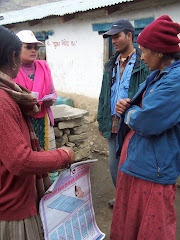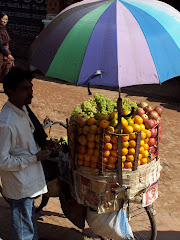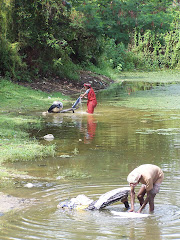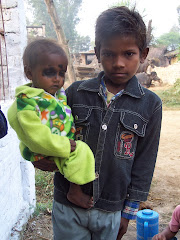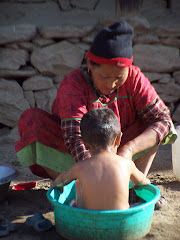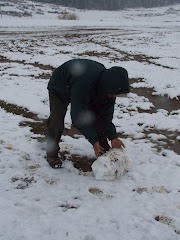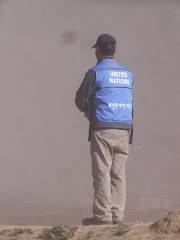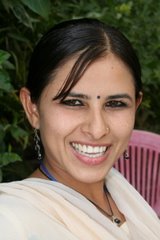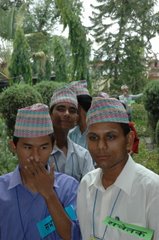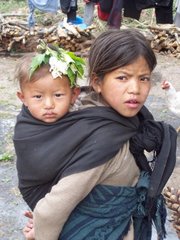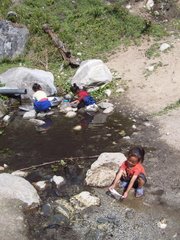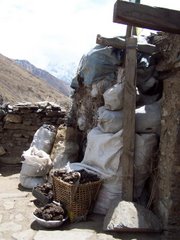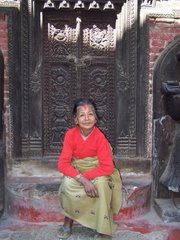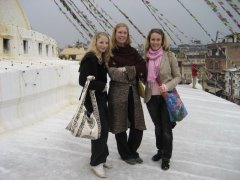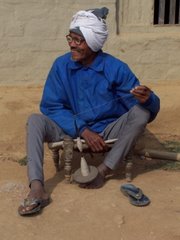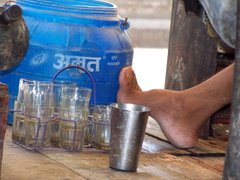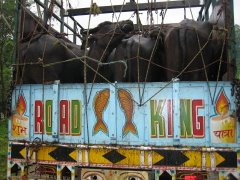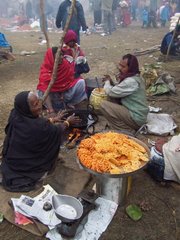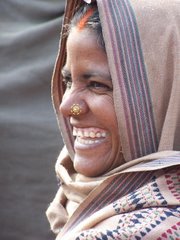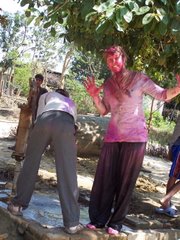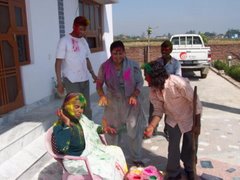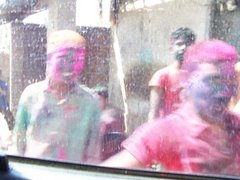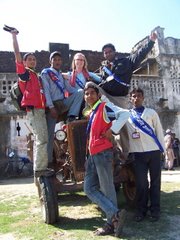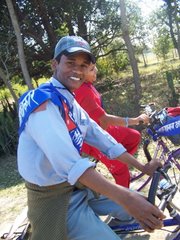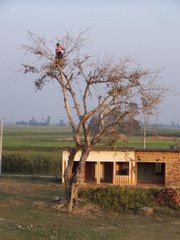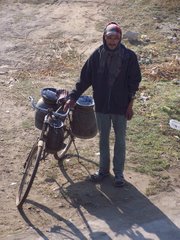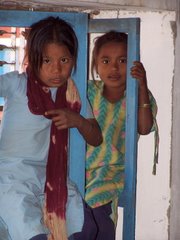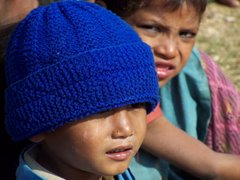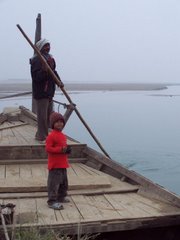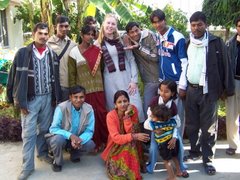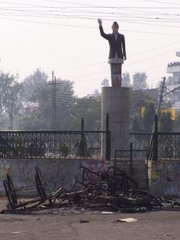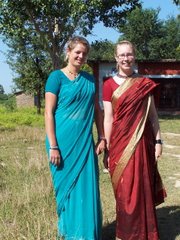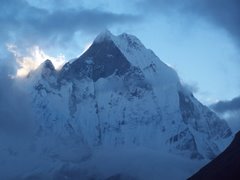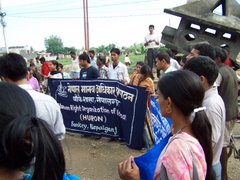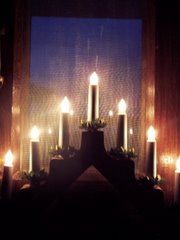
 The Maoist are travelling the country holding mass meeting and Tuesday Phagun 15 (Nepal has their own calender) it was the turn of Nepalgunj to be the host. The party expected 300.000 people to show up, not all of them would come voluntarily. Youth groups started moving around in Nepalgunj already the day before, and early in the morning banners were coming up and signs drawn on the street to point everyone in the right direction.
The Maoist are travelling the country holding mass meeting and Tuesday Phagun 15 (Nepal has their own calender) it was the turn of Nepalgunj to be the host. The party expected 300.000 people to show up, not all of them would come voluntarily. Youth groups started moving around in Nepalgunj already the day before, and early in the morning banners were coming up and signs drawn on the street to point everyone in the right direction.The last couple of months there have been several clashed between the Maoists and MPRF, Madehsi People's Rights Forum; both parties have called Bandhs (strike/blockades), they have detained each others and people have been hurt and killed in the clashes. Remembering the incident during Christmas in Nepalgunj, the human rights (civil society) community feared violence again and all organisations in Nepalgunj organised a common monitoring of the meeting.
 Buss loads of people were taken in to town and demonstrations started from several points walking towards the field of the meeting. Even though not as many as expected showed up there were several large processions, mostly consisting of young students, women and old people.
Buss loads of people were taken in to town and demonstrations started from several points walking towards the field of the meeting. Even though not as many as expected showed up there were several large processions, mostly consisting of young students, women and old people.During the meeting, several speakers talking, with cultural programmes in between. Everyone was made to sit down so that we could all see, and there were speakers everywhere, even outside the field. After the programme, people were quickly bussed back out of Nepalgunj and after less than half an hour the town was back to normal again. All in all the meeting was very well organised and it was easy to see that this used to be (hmm, is) an army.
The main speaker of the meeting was of course Prachanda, the Maoist leader. He talked about the creation of a new Nepal that will work together with the old Nepal, welcomed us all to the new Nepal and said that we must not forget the last decade of conflict leading Nepal to the
 situation of today. He also talked about the importance of the new constitution and the up-coming election to the Constituent Assembly. This is about where he lost me, as all Nepalis, he said everything at least three times, and I had no change of following all of the one and a half hour speech. Therefore I do not know if he said how the still ongoing violence should be stopped, why over 30,000 combatants but only some 3,500 weapons were registered by the UN, or how the most used political technique of calling bandhs can be regarded democratic rule. About the difference between combatants and weapons, he has earlier said that the other weapons had been flushed away by floods or burnt by the Nepal Army. His position on the violence and bandhs I do not know.
situation of today. He also talked about the importance of the new constitution and the up-coming election to the Constituent Assembly. This is about where he lost me, as all Nepalis, he said everything at least three times, and I had no change of following all of the one and a half hour speech. Therefore I do not know if he said how the still ongoing violence should be stopped, why over 30,000 combatants but only some 3,500 weapons were registered by the UN, or how the most used political technique of calling bandhs can be regarded democratic rule. About the difference between combatants and weapons, he has earlier said that the other weapons had been flushed away by floods or burnt by the Nepal Army. His position on the violence and bandhs I do not know.
 There were no clashes or violence in town or at the meeting. Afterwards however, it turned out that some Maoist had gone out to villages in the district to summon people. The MPRF had shown some resistance and at least two villagers died in the fights between the parties. There might be peace in this country, but for the Nepali people, it is still not safe.
There were no clashes or violence in town or at the meeting. Afterwards however, it turned out that some Maoist had gone out to villages in the district to summon people. The MPRF had shown some resistance and at least two villagers died in the fights between the parties. There might be peace in this country, but for the Nepali people, it is still not safe.






